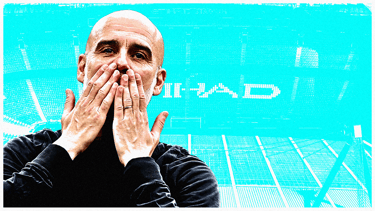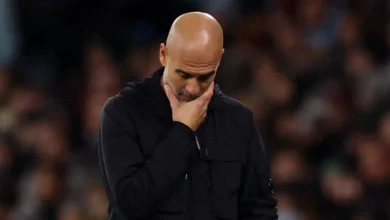A Comprehensive Analysis of the 115 Charges and Sponsorship Battle

The football world continues to watch with bated breath as Manchester City finds itself embroiled in one of the most complex and consequential legal battles in Premier League history. What began as investigations into financial irregularities has evolved into a multi-faceted legal war that could fundamentally reshape how football clubs operate within the English top flight. The latest developments suggest that resolution remains distant, with new timelines emerging that push potential verdicts well into 2026, leaving clubs like Arsenal and other Premier League rivals in a state of prolonged uncertainty.
The Dual-Front Legal Campaign
Manchester City’s current predicament encompasses two distinct but interconnected legal challenges against the Premier League. The more widely publicized case involves the unprecedented 115 charges related to alleged financial misconduct spanning nearly a decade. However, running parallel to this headline-grabbing case is an equally significant battle over the Premier League’s Associated Party Transaction (APT) rules, which govern how clubs can structure sponsorship deals with entities connected to their ownership.
This dual-front approach represents a comprehensive challenge to the Premier League’s regulatory framework, with City not merely defending against accusations but actively attacking the legitimacy of the rules themselves. The strategic implications of this approach cannot be understated, as success in either case could have far-reaching consequences for how football governance operates in England.
The complexity of these intertwined legal proceedings has created a labyrinthine situation where timelines shift, new challenges emerge, and the football community remains in limbo. For Arsenal, who have found themselves repeatedly finishing as runners-up to City in recent seasons, these legal proceedings carry particular significance as they could potentially retroactively impact past achievements and future competitive balance.
The Sponsorship Rules Challenge: A Battle for Financial Freedom
The Associated Party Transaction rules challenge represents perhaps the most immediately consequential aspect of City’s legal strategy. These regulations were implemented by the Premier League to prevent clubs from inflating their revenues through artificially enhanced sponsorship deals with companies connected to their ownership groups. The rules aim to ensure that commercial partnerships reflect genuine market value rather than serving as vehicles for circumventing Financial Fair Play regulations.
City’s initial challenge to these rules proved partially successful, with an independent tribunal finding certain aspects of the APT regulations to be unlawful. This victory, however, was short-lived as the Premier League responded by amending the rules to address the tribunal’s concerns. City’s reaction was swift and aggressive, launching a fresh legal challenge that questioned not only the revised regulations but also their implementation and enforcement.
The crux of City’s argument centers on what they perceive as inconsistent application of financial regulations across different clubs. Their legal team has specifically highlighted the treatment of loans provided to clubs like Arsenal, Leicester City, Brighton, and Everton, arguing that these financial arrangements receive more favorable treatment than sponsorship deals involving related parties. This argument strikes at the heart of competitive fairness, suggesting that the current regulatory framework creates an uneven playing field that disadvantages clubs with certain ownership structures.
According to recent reports from The Lawyer magazine, the hearing for this sponsorship challenge has been scheduled for autumn 2025, with a final verdict not expected until 2026. This extended timeline reflects the complexity of the legal issues involved and the thoroughness with which both parties are approaching the case. The delay also ensures that any potential changes to the regulatory framework will not impact the current or immediate future seasons, maintaining stability while the legal process unfolds.
The 115 Charges: A Decade of Alleged Financial Misconduct
While the sponsorship rules challenge may seem technical and regulatory in nature, the 115 charges case represents a far more existential threat to Manchester City. These charges cover a nine-year period and encompass a wide range of alleged financial irregularities, from inflated sponsorship deals to failure to provide accurate financial information to the Premier League.
The charges themselves are unprecedented in their scope and severity. They include allegations of providing misleading financial information, failing to cooperate with Premier League investigations, and breaching Financial Fair Play regulations designed to prevent clubs from spending beyond their means. If proven, these charges could result in punishments ranging from substantial fines to points deductions, or in the most extreme scenario, expulsion from the Premier League entirely.
City has consistently and vehemently denied all charges, maintaining their innocence while expressing confidence in their legal position. The club’s public statements have emphasized their belief that the charges are without merit and that they will be fully vindicated when the legal process concludes. This stance has been supported by their aggressive legal strategy, which has seen them challenge not only the specific allegations but also the processes and regulations under which they are being prosecuted.
The hearing for the 115 charges case concluded in late 2024 after a marathon 12-week period during which both sides presented extensive evidence and legal arguments. The complexity of the case, involving detailed financial records, expert testimony, and complex regulatory interpretations, has necessitated a thorough review period that has already extended beyond initial expectations.
Originally, a verdict was anticipated in March 2025, but the timeline has been repeatedly pushed back as the independent panel carefully considers the vast amount of evidence presented. Current expectations suggest that a decision is more likely to come after the conclusion of the current season, potentially in summer 2025, though even this timeline remains uncertain given the case’s complexity.
The Ripple Effects Across English Football
The prolonged nature of these legal proceedings has created significant uncertainty throughout the Premier League ecosystem. For competitors like Arsenal, who have consistently challenged City for top honors in recent seasons, the potential outcomes carry profound implications for both past achievements and future competitive dynamics.
Arsenal’s perspective on these proceedings is particularly complex, given their direct competitive relationship with City. The Gunners have finished as runners-up to City in multiple seasons, with narrow margins often deciding the title race. Should City face retrospective punishments, questions could arise about the legitimacy of past championship wins and the potential for title redistributions, though such scenarios remain highly speculative and legally complex.
Beyond the immediate competitive implications, Arsenal and other Premier League clubs are watching these cases closely for their broader regulatory impact. The sponsorship rules challenge could fundamentally alter how clubs structure their commercial relationships, potentially opening new avenues for revenue generation or imposing additional restrictions depending on the outcome.
The uncertainty has also impacted transfer market dynamics and long-term planning across the league. Clubs must navigate their financial strategies without knowing whether current regulations will remain in place or face significant modifications. This uncertainty is particularly acute for clubs with ownership structures similar to City’s, who may find their commercial strategies validated or severely constrained based on the legal outcomes.
Current Season Implications and Sporting Context
Despite the legal clouds hanging over the club, Manchester City continues to compete at the highest level, though their current season has been characterized as disappointing by their traditionally high standards. Pep Guardiola’s team currently sits below Arsenal in the Premier League table, a position that would have been unthinkable during their recent period of dominance.
However, City remains well-positioned to secure Champions League qualification, sitting four points clear of sixth-placed Chelsea following their recent victory over Aston Villa. This positioning demonstrates the club’s continued competitive strength despite the off-field distractions and legal pressures they face.
The timing of any potential verdicts appears designed to minimize disruption to the current competitive season. With decisions in both cases unlikely to arrive before the season’s conclusion, City can focus on their sporting objectives without the immediate threat of mid-season punishments. This approach reflects the Premier League’s desire to maintain competitive integrity while allowing the legal process to run its course.
Potential Consequences and Precedents
The range of potential punishments facing Manchester City reflects the severity of the charges and the Premier League’s determination to enforce its regulations. Financial penalties, while significant, would likely be absorbed by City’s substantial resources without dramatically impacting their competitive position. More severe sanctions, however, could fundamentally alter the club’s trajectory and the broader Premier League landscape.
Points deductions represent a more meaningful punishment that could impact City’s league position and European qualification prospects. The precedent for such sanctions exists within English football, with clubs in various divisions having faced points deductions for financial irregularities, though none on the scale potentially facing City.
The most extreme potential punishment—expulsion from the Premier League—would represent an unprecedented sanction with far-reaching consequences. Such a decision would not only impact City but also affect broadcasting deals, competitive balance, and the league’s international reputation. While this outcome is considered unlikely by most observers, its inclusion in discussions surrounding potential punishments underscores the gravity of the charges.
The Broader Implications for Football Governance
Beyond the immediate impact on Manchester City and their competitors, these legal proceedings represent a crucial test of the Premier League’s regulatory authority and the effectiveness of Financial Fair Play regulations. The cases will establish important precedents for how football governance operates in an era of increasingly complex ownership structures and commercial relationships.
The sponsorship rules challenge, in particular, could reshape how clubs approach their commercial strategies. If City’s arguments about inconsistent enforcement prove successful, it could force the Premier League to reconsider its approach to regulating club finances and ensuring competitive balance. Conversely, if the current regulations are upheld and strengthened, it could signal a more restrictive environment for club commercial activities.
The international implications of these cases also cannot be ignored. Other European leagues and UEFA are watching closely, as the outcomes could influence broader regulatory approaches to club ownership and financial management. The precedents set in these cases may well extend beyond English football to impact the global game.
Arsenal’s Strategic Positioning
For Arsenal, the ongoing uncertainty creates both challenges and opportunities. The Gunners have invested heavily in their squad and infrastructure in recent years, positioning themselves as genuine title contenders. The potential for retrospective changes to City’s competitive position could vindicate Arsenal’s patient approach to squad building and financial management.
However, Arsenal must also prepare for various scenarios regarding regulatory changes. If the sponsorship rules are significantly altered, the club may need to reassess its commercial strategy and explore new revenue opportunities. Conversely, if the regulations are strengthened, Arsenal’s traditionally conservative financial approach may prove advantageous in the long term.
The uncertainty also affects Arsenal’s transfer planning and competitive strategy. Without knowing the final outcome of City’s legal battles, Arsenal must prepare for scenarios ranging from continued competition with a potentially strengthened City to facing a weakened rival dealing with significant sanctions.
The Path Forward
As the legal proceedings continue to unfold, the football community faces an extended period of uncertainty that could stretch well into 2026. The complexity of the cases, the stakes involved, and the precedents being set all contribute to a situation where patience will be required from all stakeholders.
For Manchester City, the focus remains on proving their innocence while continuing to compete at the highest level. Their legal strategy appears designed to challenge not just the specific allegations against them but the broader regulatory framework within which they operate. Success in either case could vindicate their approach and provide greater freedom for future operations.
The Premier League, meanwhile, faces the challenge of maintaining competitive integrity while allowing the legal process to run its course. Their handling of these cases will be scrutinized by clubs, fans, and regulatory bodies worldwide, making the outcomes crucial for their long-term authority and credibility.
For Arsenal and other Premier League clubs, the waiting game continues. The eventual resolution of these cases will likely reshape the competitive landscape in ways that are difficult to predict but impossible to ignore. The only certainty is that the outcomes will have far-reaching consequences that extend well beyond the specific clubs involved, potentially altering the fundamental nature of competition in English football for years to come.
As the 2024-25 season progresses toward its conclusion, these legal battles serve as a constant reminder of the complex relationship between sporting success and financial regulation in modern football. The eventual verdicts, when they finally arrive, will mark not just the end of specific legal proceedings but potentially the beginning of a new era in football governance, with implications that will resonate throughout the sport for generations to come.















